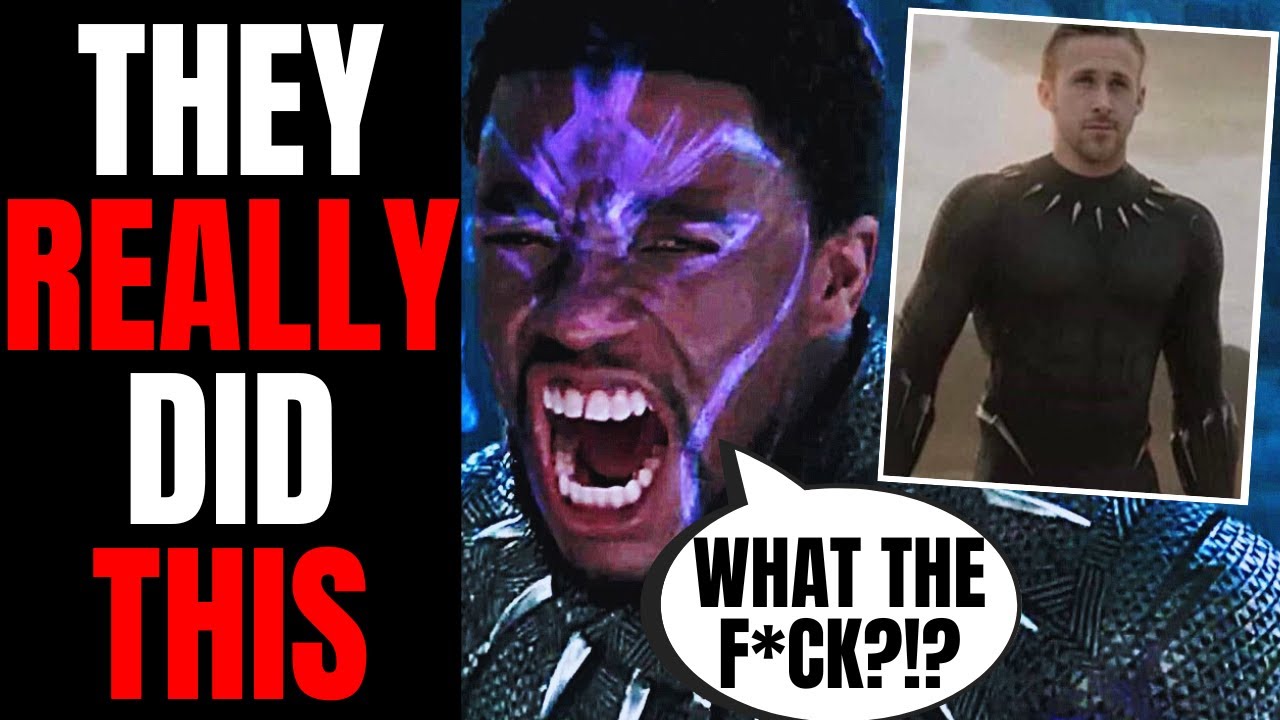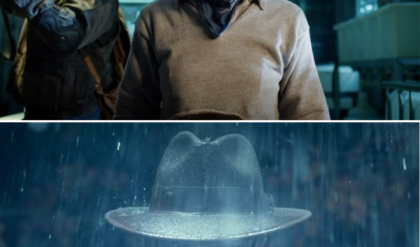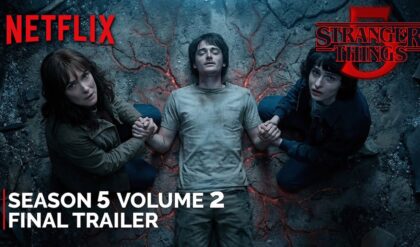😱 MARVEL JUST DROPPED A BOMBSHELL! 😱 The new Black Panther is WHITE, and “woke” fans are in FULL MELTDOWN mode! In Marvel Knights: The World To Come, T’Challa’s son Ketema—blond, blue-eyed, and Caucasian—seizes the Wakandan throne, sparking a social media FIRESTORM! 🔥 Some scream “cultural erasure,” others call it a bold twist. Is this Marvel trolling or a betrayal of Black Panther’s legacy? The internet’s EXPLODING—jump in and uncover the truth behind this wild controversy!

White Black Panther Reveal: Marvel’s Controversial Move Sparks Woke Fan Outrage
On June 4, 2025, Marvel Comics unleashed a narrative bombshell with the release of Marvel Knights: The World To Come #1, a six-issue limited series that has ignited one of the most polarizing debates in recent comic book history. The issue introduces Ketema, a white, blond-haired, blue-eyed character who defeats T’Challa, the iconic Black Panther, in ritual combat to claim the mantle of Wakanda’s king and protector. Proclaiming, “Wakanda is my birthright, and I will claim it,” Ketema’s unmasking as a Caucasian has triggered a fierce backlash, particularly among fans labeled as “woke” by critics, who decry the move as a cultural betrayal. Social media platforms like X and Reddit are ablaze with accusations of “erasure” and “whitewashing,” while others defend the twist as a provocative narrative choice. What drove Marvel to make this decision, and what does the uproar reveal about representation, fandom, and the legacy of Black Panther?
The Narrative: A Shocking Succession
Marvel Knights: The World To Come, penned by Christopher Priest—a trailblazing Black writer known for his 1998–2003 Black Panther run—and illustrated by Joe Quesada, is set in a near-future Earth-616, Marvel’s primary continuity. The story opens with an aging T’Challa, long the king of Wakanda, facing a ceremonial duel to determine the nation’s ruler. His opponent is Ketema, introduced as T’Challa’s son, born to Monica Lynne, a Black American singer from T’Challa’s early 1970s stories. In a tense battle, Ketema uses forbidden weapons to defeat his father, sparing T’Challa’s life but claiming the Black Panther mantle. The issue’s final page delivers the gut-punch: Ketema removes his mask, revealing pale skin, blond hair, and blue eyes, stunning Wakandan elders and readers alike.
The reveal, first reported by Bleeding Cool on June 5, 2025, sent shockwaves through the comic community. Black Panther, created by Stan Lee and Jack Kirby in 1966’s Fantastic Four #52, is a cornerstone of African representation in comics, embodying Afrofuturism through Wakanda, an uncolonized, technologically advanced African nation. T’Challa, immortalized by Chadwick Boseman in the 2018 MCU film Black Panther, is a global symbol of Black pride and resilience. Ketema’s whiteness, with no immediate explanation for his appearance, has been perceived by many as a direct challenge to this legacy, prompting a fierce outcry.
The Backlash: A “Woke” Meltdown?
The reaction on social media was immediate and intense, particularly among fans described as “woke”—a term often used to denote those who prioritize progressive values like diversity and inclusion. On X, posts like @ComicCrusader’s “Marvel just whitewashed Black Panther. This is cultural theft!” garnered thousands of likes, while @WakandaWatcher wrote, “T’Challa’s son is WHITE? They really did this to Wakanda’s legacy?” Hashtags such as #BoycottMarvel and #SaveBlackPanther trended, reflecting a sense of betrayal. Reddit’s r/comicbooks, with 1.7 million members, saw threads like “Marvel’s White Black Panther Is a Disgrace” amass hundreds of upvotes, with users arguing that the move undermines the character’s African roots.
The 2018 Black Panther film, which grossed $1.34 billion and became the first superhero movie nominated for Best Picture at the Oscars, amplified the character’s cultural weight. Its celebration of African heritage, from costumes inspired by the Maasai and Zulu to a soundtrack curated by Kendrick Lamar, made T’Challa a beacon of representation. Fans on r/MarvelStudios called Ketema’s reveal “a slap in the face,” with one user stating, “This erases everything the MCU built for Black audiences.” Others pointed to Marvel’s history of controversial casting, like Tilda Swinton as the Ancient One in Doctor Strange, as evidence of tone-deafness on race.
The term “whitewashing” has been central to the criticism. Historically, whitewashing refers to casting white actors in roles meant for people of color or altering characters’ ethnic identities, as seen in Ghost in the Shell or The Last Airbender. Ketema’s introduction, especially as T’Challa’s son, feels to many like a narrative whitewashing of Wakanda’s Black identity. A Newsweek report on June 6 noted fans questioning how a child of T’Challa and Monica Lynne, both Black, could be Caucasian, with some speculating about adoption or an alternate mother like Nicole Adams, a character from Priest’s run.
Defenders: A Narrative Gambit or Trolling?
Not all fans oppose the twist. Some argue it’s too early to judge, given the series’ incomplete arc. On r/Marvel, a thread with 89 upvotes suggested Priest is “trolling” fans by subverting expectations, with Ketema possibly a villain or temporary usurper. Priest, who told AIPT Comics that the series operates outside main continuity, has a history of challenging norms—his Black Panther run redefined T’Challa as a cunning diplomat rather than a generic superhero. Supporters on X, like @ComicLoreMaster, wrote, “Priest is Black and made Black Panther iconic. Trust him to have a plan.” Others see the reveal as a critique of legacy and entitlement, with Ketema’s dishonorable victory—using weapons in a sacred duel—hinting at an antagonistic role.
The involvement of Priest, Marvel’s first Black writer-editor, complicates accusations of insensitivity. His 1998 run introduced enduring elements like the Dora Milaje and Wakanda’s political complexity, earning acclaim for its depth. A CBR article on June 5 suggested Priest might be satirizing simplistic Afrofuturist tropes or exploring themes of cultural purity, especially since Ketema’s claim to Wakanda defies traditional tribal laws. SuperHeroHype reported that issue #2, set for July 9, 2025, will delve into Ketema’s origins, with Everett K. Ross and a Mexican setting providing clues.
The Broader Context: Marvel’s High-Stakes Moment
The controversy arrives at a precarious time for Marvel. The MCU’s Phase Five has struggled, with Thunderbolts and Captain America: Brave New World underperforming at the box office. The Fantastic Four: First Steps, slated for July 2025, is already mired in allegations of inflated ticket sales. Marvel Knights: The World To Come’s non-canonical status offers creative freedom, but the backlash underscores the risks of tampering with a character as culturally significant as Black Panther. FandomWire noted that while Marvel has diversified other mantles—like Miles Morales as Spider-Man or Sam Wilson as Captain America—making Black Panther white feels like a reversal of progress.
The uproar also reflects broader tensions in fandom. The term “woke,” once a call for social awareness, has become a pejorative for some, used to mock fans who prioritize diversity. On X, users like @GeeksGamersCom labeled detractors “fake Marvel fans,” arguing they’re overreacting to a single issue. This mirrors debates in other franchises, like Star Wars or The Lord of the Rings, where diversity-driven changes spark polarized reactions. The Washington Post reported in 2024 that fandoms are increasingly divided, with social media amplifying outrage over creative risks.
Cultural and Narrative Implications
Black Panther’s significance extends beyond comics. The 2018 film was a cultural milestone, with The New York Times noting its impact on Black audiences and its universal appeal, outperforming with both white and non-white viewers. Wakanda’s uncolonized status and T’Challa’s regal authority challenge Western stereotypes, making Ketema’s whiteness a lightning rod for accusations of cultural erasure. Fans on r/popculture argued that even a temporary white Black Panther risks diluting this legacy, especially in a post-Chadwick Boseman era where T’Challa’s absence still looms large.
Narratively, Ketema’s introduction raises questions about heritage and identity. If he is T’Challa’s biological son, his appearance could stem from a plot device like albinism, genetic manipulation, or an alternate parent, such as Nicole Adams, who appears on issue #3’s cover. Bleeding Cool speculated about adoption or a twist involving Nakia or Storm, T’Challa’s past loves. Alternatively, Priest might be critiquing Wakanda’s insularity, as he did in his 1998 run, where T’Challa faced tribal dissent. ComicBookMovie.com suggested Ketema’s arc could mirror real-world debates over who “belongs” in cultural spaces, though this risks alienating fans if mishandled.
The Path Forward: Redemption or Ruin?
As Marvel Knights: The World To Come progresses, Marvel must navigate a delicate path. Issue #3, due August 2025, promises answers about Ketema’s origins and T’Challa’s response. EURweb reported fans hoping Wakandans reject Ketema, restoring a Black Panther aligned with tradition. The series’ limited scope suggests a contained experiment, but its fallout could impact the MCU, particularly with Black Panther 3 rumored to focus on T’Challa’s son Toussaint. CountyLocalNews urged Marvel to engage fans transparently, lest it lose trust in a franchise that redefined superhero storytelling.
The “woke” fan meltdown over the white Black Panther reflects the deep emotional investment in T’Challa and Wakanda. Whether Priest’s gambit is a brilliant subversion or a misstep, it has sparked a vital conversation about representation, creative risk, and the boundaries of legacy. As the series unfolds, Marvel has a chance to honor Black Panther’s African roots while challenging readers to rethink what Wakanda means in a changing world. For now, the cry of “They really did this” echoes across fandom, a testament to the enduring power of Marvel’s First King.





